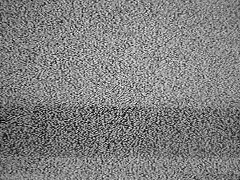 Blood Simple is a neo-noir crime film. It was the directorial debut of Joel and Ethan Coen, and the first major film of cinematographer Barry Sonnenfeld, who later became a noted director. The film's title derives from Dashiell Hammett's novel Red Harvest, in which "blood simple" is a term coined to describe the addled, fearful mindset people are in after a prolonged immersion in violent situations. The reissue of Joel Coen’s and Ethan Coen’s 1984 Blood Simple contains a brief tongue-in-cheek prologue in which a tweedy Clifton Fadiman clone puts aside a leather-bound tome long enough to extol the merits of "this exquisite masterpiece." (It’s the filmed equivalent of the put-on prefaces that accompany published versions of the Coens’ screenplays.) But what "Mortimer Young" doesn’t mention is how offbeat the movie seemed at the time of its debut, or how it thwarted moviegoers who’d become addicted to rooting for their protagonists. Blood Simple represented a different breed of filmmaking: ironic, seemingly indifferent to the welfare of its characters, and extravagantly aware of itself as a movie. Even some of its biggest fans had a hard time articulating what they liked about the film because its intentions couldn’t be confirmed until the Coens had made another picture or two.
Blood Simple is a neo-noir crime film. It was the directorial debut of Joel and Ethan Coen, and the first major film of cinematographer Barry Sonnenfeld, who later became a noted director. The film's title derives from Dashiell Hammett's novel Red Harvest, in which "blood simple" is a term coined to describe the addled, fearful mindset people are in after a prolonged immersion in violent situations. The reissue of Joel Coen’s and Ethan Coen’s 1984 Blood Simple contains a brief tongue-in-cheek prologue in which a tweedy Clifton Fadiman clone puts aside a leather-bound tome long enough to extol the merits of "this exquisite masterpiece." (It’s the filmed equivalent of the put-on prefaces that accompany published versions of the Coens’ screenplays.) But what "Mortimer Young" doesn’t mention is how offbeat the movie seemed at the time of its debut, or how it thwarted moviegoers who’d become addicted to rooting for their protagonists. Blood Simple represented a different breed of filmmaking: ironic, seemingly indifferent to the welfare of its characters, and extravagantly aware of itself as a movie. Even some of its biggest fans had a hard time articulating what they liked about the film because its intentions couldn’t be confirmed until the Coens had made another picture or two.Download links: 1 2 3 4 5 6 7 or 1 2 3 4 5 6 7









































